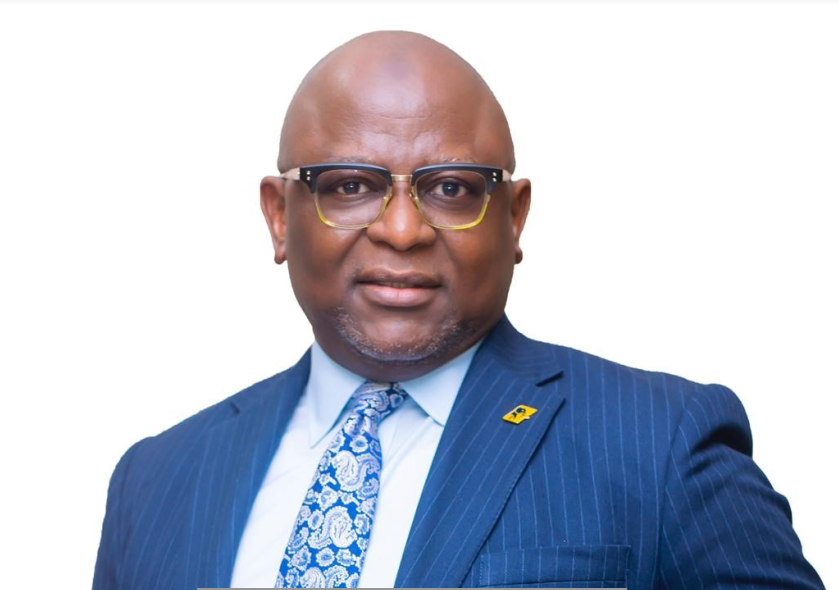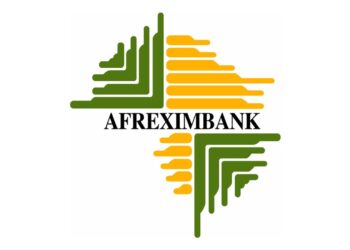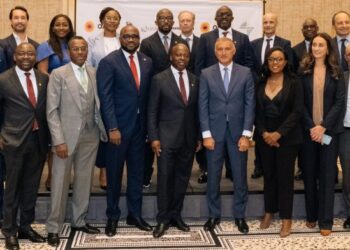Dr. Adesola Adeduntan, CEO, First Bank of Nigeria Ltd, has reiterated the Bank’s commitment to support sustainable revenue drive in growing the economy. The CEO said this in his opening remark during the recently held Non-Oil Export Webinar by the bank aimed at promoting awareness on the prospects of Non-Oil Export in Nigeria.
The virtual webinar, themed, ‘Building Sustainable Non-Oil Export in Nigeria; Harnessing Opportunities within AFCFTA Treaty and Agro Commodities’ saw experts shed light on the issues surrounding exportation as well as how existing and prospective players across the export value chain can grow their businesses within and even beyond the AfCFTA.
According to the Adeduntan, the bank would continue to work towards creating nimble product and service offerings for export trade services cutting across Agriculture, Structured Trade and Commodity Financing and Treasury.
In his analysis, Biodun Adedipe, founder and consultant, B. Adedipe Associate limited noted that oil accounted for 88.75 percent of foreign trade in the first half of 2021 but only 7.49 percent of GDP in third quarter of the year, a disconnect of sort according to him, has weak linkage to the rest of the economy
He said, “Anytime you import from any country, you are creating jobs in that country. If we also begin to strengthen our non-export,that means we will be creating jobs locally in Nigeria. Out of what people will consume abroad and that becomes very significant. This gives us a picture of the risk Nigeria will be faced with when they go all into hydrocarbons. Everywhere around the world, people are moving for fossil fuel
“The world Nigeria operated in before Covid is fast disappearing and the question is what needs to happen as the disease becomes endemic. The first thing is our focus and orientation needs to change as in we have to look at ourselves growing our economyc based on export just like the export-led growth of Japan, Germany and China. This can also be done via special services delivery.”
Folorunsho Akintunde, Deputy Director, NEPC pointed out the African Continental Free Trade Area (AfCFTA) has provided an opportunity for the 1.2 billion population of the 54 African countries with market value of $3.4 trillion, adding that Success with AfCFTA requires a diversified and sustainable Nigerian economy with strong linkages with neighbours and the top economies in Africa and a globally accepted country brand.
Similarly, Yusuf Malanta, the Area Controller of Apapa Command of Nigeria Customs Service referred to the initiative as a flagship project of the African Union (AU), established in 2018 to create a single market for goods and services, facilitated by movement of persons, to promote industrial development and sustainable and inclusive socio-economic growth targeted towards deepening the economic integration of Africa.
Noting that 54 member states of the AU have signed the agreement, and 36 countries have deposited their instruments of ratification as of February 2021, he pointed out that the expectations of the AFCFTA is to reduce poverty, increase firm competitiveness, and boost intra-African trade and investment.
Eric Monchu, the regional chief operating officer and head of mission for Anglophone West Africa, AFREXIMBANK regarded the bank as a catalyst to the AFCFTA. Monchu pointed out that the Bank developed a suite of products, programmes and initiatives which formulate the bank’s envisioned interventions in providing tailored trade/project Financing, capacity for Intra-African Trade Facilitation as well as Technical Assistance in support of growth of intra-African trade.
Stella Okotete, Executive Director, Business Development of the Nigerian Export-Import Bank (NEXIM) while speaking on the need to broaden the scope of insurance covered by the export credit insurance said, “If we are going beyond the political aspect of it and involving commercial risks, it will increase our trade activities within the African continent especially looking at what AfCFTA has to build and the risk associated with some of the distribution company within the African continent.
“We are working hard on that and I am sure that by Q1 2022, we will be rolling up our sleeves and coming up with new products that will support inter African trade using the export credit insurance.”


















